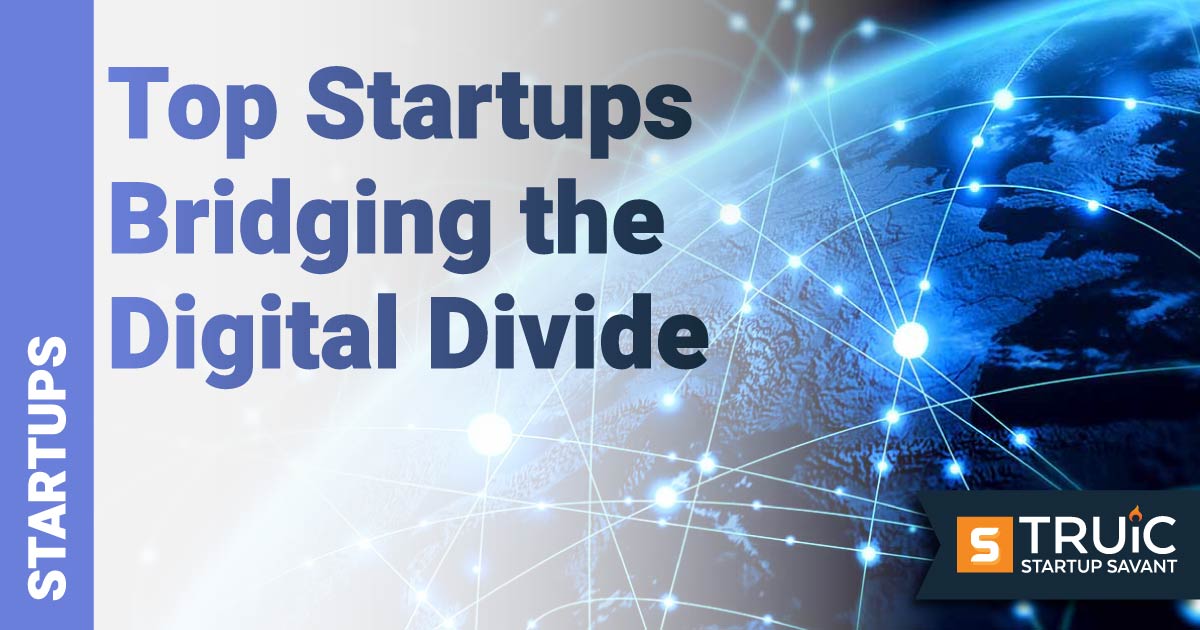As the world becomes increasingly digitally focused, the disparity between those who have access to the internet and those that don’t also becomes more apparent. This is called the “digital divide” and results in increasing disadvantages and risk of internet-less communities being left behind. We’ve found some startups that aim to bridge that digital divide.
Companies Bridging the Digital Divide
Every year, new startups pull to the forefront of their industry through exciting innovation and industry-disrupting business models. We’ve rounded up several startup companies bridging the digital divide that startup-lovers, investors, and aspiring entrepreneurs should follow.
Disclaimer: With so many exciting startups launching and growing worldwide, we aren’t able to cover them all. Furthermore, the startups that are listed below are not officially ranked and are listed in no particular order.
1. Starlink
- Location: Austin, Texas
- Founder(s): Elon Musk, Greg Wyler
- Founded In: 2019
- Funding: Convertible Debt, $730 Million
- Investors Include: Canadian Space Agency
Starlink is an ambitious satellite internet constellation project developed by SpaceX. The system aims to provide global broadband coverage — particularly targeting rural and remote areas that lack traditional internet infrastructure. Starlink deploys a vast network of small satellites in low Earth orbit, which work together to deliver high-speed internet to ground-based receivers. This technology has the potential to revolutionize internet access by bypassing the need for extensive ground-based infrastructure. Starlink’s service is designed to offer low-latency, high-bandwidth internet to areas previously underserved by conventional internet providers.
2. Endless
- Location: San Francisco, California
- Founder(s): Matt Dalio
- Founded In: 2011
- Funding: Series B, $48 Million
- Investors Include: Undisclosed
Endless and its Endless OS Foundation — a nonprofit extension of Endless focused on expanding the company’s solutions — develops affordable computing solutions for communities with limited internet access. This tech company’s flagship product is a low-cost computer designed to work efficiently in areas with poor or no internet connectivity. Endless has created its own operating system, which comes preloaded with a wealth of offline educational content and applications that allow users to access valuable information even without an internet connection. The company’s approach goes beyond hardware because it also focuses on digital literacy programs and partnerships with local organizations to ensure its technology makes a lasting impact in underserved communities.
3. Althea L1
- Location: Clatskanie, Oregon
- Founder(s): Deborah Simpier, Jehan Tremback, Justin Kilpatrick
- Founded In: 2018
- Funding: Seed, $10.2 Million
- Investors Include: KR1, Coral DeFi, Assembly Capital Partners
Althea L1 is a decentralized internet service provider that leverages blockchain technology to create community-driven networks. The company’s innovative model allows individuals to set up and operate their own local internet infrastructure, earning cryptocurrency for sharing their bandwidth with others. Althea L1’s system uses mesh network technology where each node in the network can route data to and from other nodes, creating a resilient and expandable network.
4. Digital Divide Data
- Location: New York, New York
- Founder(s): Jeremy Hockenstein, Jaeson Rosenfeld, Michael Chertok
- Founded In: 2001
- Funding: Series Unknown, $2.1 Million
- Investors Include: Fossil Foundation, Rockefeller Foundation, RSF Social Finance
Digital Divide Data is a startup that helps bridge the digital divide by providing employment opportunities and university education through world-class outsourcing services. The company focuses on helping under-resourced communities access the type of educational services and employment opportunities that they would otherwise never see.
5. 510.Ventures
- Location: Amsterdam, Netherlands
- Founder(s): Carlos Torres, Atte Anema
- Founded In: 2015
- Funding: Seed, €1.2 Million
- Investors Include: Undisclosed
510.Ventures is a Dutch startup whose tagline is literally “helping to bridge the digital divide.” The company uses research, development, tech, and digital ecosystems in what it calls its mission to help shape the postmodern era. Their products include open development tools to seamlessly integrate business environments, especially in less-connected areas such as their pilot project in Rwanda.
6. Ready
- Location: Washington D.C.
- Founder(s): Jase Wilson, Mike Faloon
- Founded In: 2020
- Funding: Series A, $20.8 Million
- Investors Include: Caffeinated Capital, Thiel Capital, Arbor Ventures
Ready is a software startup that helps local internet service providers (ISPs) to connect more subscribers to better broadband services in areas where more advanced internet services are not available. Among its services for ISPs, Ready includes access to broadband grants for development, open-source and ad-free measurement tools, and a locals-first ISP directory.
7. Zipline
- Location: San Francisco, California
- Founder(s): Keenan Wyrobek, Keller Rinaudo Cliffton
- Founded In: 2014
- Funding: Series F, $900 Million
- Investors Include: Katalyst Ventures, Reinvent Capital, Emerging Capital Partners
Zipline is an innovative logistics company that uses autonomous drones to deliver critical medical supplies to remote and hard-to-reach areas. The company’s drone delivery system is designed to overcome geographical barriers and infrastructure limitations that often hinder traditional transportation methods. Zipline’s drones can carry diverse payloads (e.g., blood, vaccines, and other essential medical products), making deliveries to rural health facilities within minutes of receiving an order. While Zipline’s primary focus is on medical deliveries, this startup’s technology indirectly supports digital connectivity by demonstrating the potential of cuttin-edge solutions in challenging environments.
8. Learning Equality
- Location: La Jolla, California
- Founder(s): Dylan Barth, Jamie Alexandre
- Founded In: 2013
- Funding: Grant, $5.5 Million
- Investors Include: Google.org, Patrick J. McGovern Foundation
Learning Equality is a startup seeking to bridge the digital divide between children with access to online learning services and those that currently do not. The Learning Equality platform allows learners to take back their right to quality education by ensuring that anyone, whether online or offline, can access their platform anywhere.

